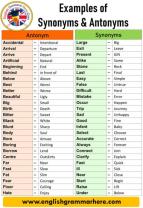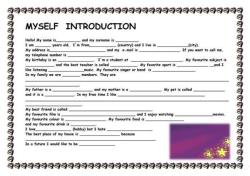How does language determine thought?
The relationship between language and thought is a complex and debated topic. While some theories, like linguistic determinism, suggest that language determines thought, this idea is not widely accepted among contemporary scholars. Instead, a more nuanced perspective, known as linguistic relativity, is commonly discussed. Here's an exploration of this complex relationship:
Linguistic Determinism: The concept of linguistic determinism posits that language entirely determines thought. In other words, if a particular concept or idea lacks a corresponding word or expression in a language, then speakers of that language cannot think about that concept. This view is often considered extreme and has limited empirical support. Most scholars reject linguistic determinism.
Linguistic Relativity (Sapir-Whorf Hypothesis): Linguistic relativity, on the other hand, suggests that language can influence thought but doesn't strictly determine it. This hypothesis can be broken down into two main principles:
Strong Whorfian Hypothesis: This asserts that language shapes thought and perception to such a degree that speakers of different languages fundamentally experience the world in distinct ways. This strong form of linguistic relativity is widely contested and not supported by robust empirical evidence.
Weak Whorfian Hypothesis: The weak form suggests that language has a more subtle influence on thought. It acknowledges that language can affect how we perceive and think about the world, but it doesn't argue for a rigid deterministic relationship. Instead, it posits that language can influence cognitive processes, such as attention, memory, and problem-solving.
Here are some ways in which language can be seen as influencing thought under the weak Whorfian hypothesis:
Categorization: Different languages categorize the world in various ways, and this linguistic categorization can influence how speakers think about and perceive objects and concepts. For instance, languages with gendered nouns may affect how speakers attribute characteristics to objects based on their gendered category.
Vocabulary and Conceptualization: The words and terms available in a language can shape how we conceptualize and think about the world. The vocabulary in a language can influence what concepts individuals are capable of expressing and understanding.
Metaphor and Analogy: Language often relies on metaphors and analogies to explain abstract or complex concepts. These metaphors can influence how people conceptualize and understand these abstract ideas.
It's crucial to note that while language can influence thought, it doesn't determine it entirely. Individuals have the capacity for abstract and flexible thinking, and they can adapt their thought processes to fit the requirements of their language and culture. Additionally, factors like personal experiences, emotions, and cultural context also play essential roles in shaping how we think and perceive the world. The relationship between language and thought is best understood as complex and interactive rather than deterministic.
Language and Thought: The Interplay Explored
The relationship between language and thought is one of the most fascinating and complex topics in cognitive science. On the one hand, language is often seen as a tool for expressing thought. We use words to communicate our ideas and feelings to others. On the other hand, there is growing evidence that language also plays a role in shaping our thoughts themselves.
One way to think about the interplay between language and thought is as a two-way street. Language can influence our thoughts, and our thoughts can influence our language. For example, if we are feeling angry, we may be more likely to use angry language. Conversely, if we use angry language, it can make us feel more angry.
Another way to think about the interplay between language and thought is as a reciprocal process. This means that language and thought mutually influence each other. For example, the words we use to describe a situation can affect how we think about that situation, and how we think about a situation can affect the words we use to describe it.
How Language Shapes Thought: A Complex Relationship
The relationship between language and thought is a complex one that is still not fully understood. However, there is a growing body of research that suggests that language does play a role in shaping our thoughts.
One way that language shapes thought is by shaping our perceptions. The words we use to describe the world can affect how we see it. For example, if we are constantly bombarded with negative news stories, we are more likely to develop a negative view of the world. Conversely, if we focus on the positive aspects of life, we are more likely to have a positive outlook.
Another way that language shapes thought is by shaping our categories. We use categories to organize our thoughts and experiences. The categories we use can affect how we think about things. For example, if we categorize people into different groups, we may start to see those groups as different and separate. This can lead to prejudice and discrimination.
Language also shapes thought by shaping our concepts. Concepts are mental representations of things, such as objects, ideas, and events. The concepts we have for different things can affect how we think about them. For example, if we have a narrow concept of what it means to be successful, we may be more likely to focus on material success and less likely to focus on other important aspects of life, such as relationships and personal growth.
The Influence of Language on Thought: Insights and Implications
The influence of language on thought has a number of important insights and implications.
First, it suggests that we should be mindful of the language we use, both in our own thoughts and in our communication with others. The words we choose can have a significant impact on our thoughts and feelings, as well as on the thoughts and feelings of others.
Second, it suggests that we can use language to change our thoughts. If we want to have a more positive outlook on life, we can focus on using positive language. If we want to be more open-minded, we can challenge ourselves to use language that is inclusive and non-discriminatory.
Finally, it suggests that we can use language to teach others. When we teach children new words, we are also teaching them new concepts and ways of thinking. When we teach students about different languages and cultures, we are also expanding their horizons and helping them to see the world from new perspectives.
Overall, the relationship between language and thought is a complex and fascinating one. Language is a powerful tool that can be used to shape our thoughts and perceptions, to communicate with others, and to learn and grow.











